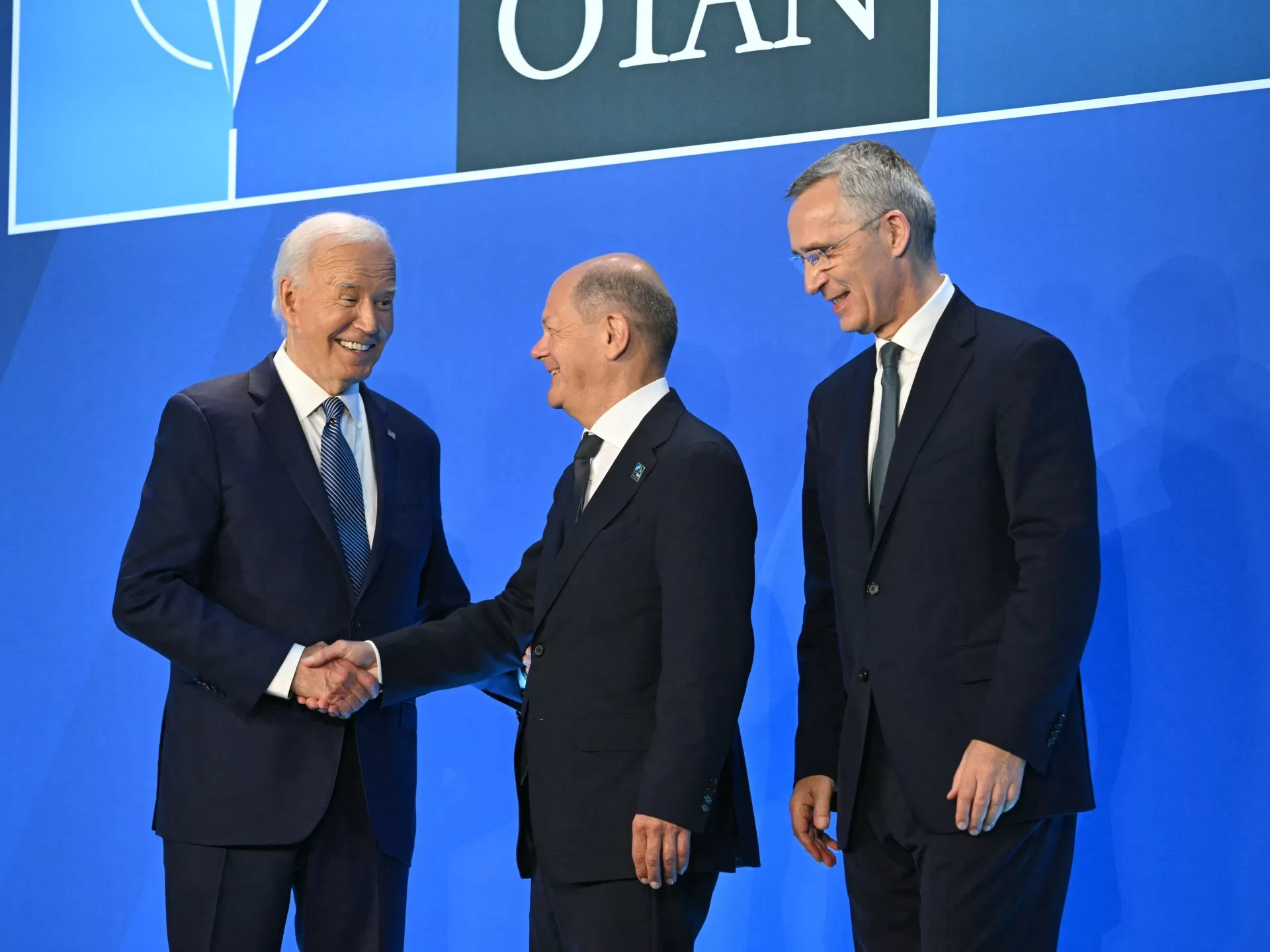Kremlin says planned US deployment of long-range missiles to Germany and other actions are ‘national security threat’.
Russia has said it will “counteract” the expansion of NATO infrastructure in Europe, claiming that the military alliance is “constantly and incrementally moving towards” its borders as tensions escalate over the war in Ukraine.
Kremlin spokesman Dmitry Peskov said on Thursday that Russia had noted decisions taken by NATO leaders at this week’s summit in Washington, DC, to “create separate logistics hubs in Black Sea cities” and open “additional facilities in Europe”.
“This is a very serious threat to the national security of our country. All of this will require us to take thoughtful, coordinated, effective responses to deter NATO, to counteract NATO,” he said.
His remarks came a day after the United States and Germany announced at the summit that the US would begin “episodic deployments” of long-range missiles – including surface-to-air SM-6 missiles, Tomahawk cruise missiles and hypersonic weapons – in Germany from 2026.
Additionally, NATO said that same day that a new US air defence base in northern Poland, designed to detect and intercept ballistic missile attacks as part of a broader NATO missile shield, was mission-ready.
NATO “has once again very clearly confirmed its essence. It is an alliance created in an era of confrontation with the aim of maintaining confrontation”, said Peskov.
Last month, President Vladimir Putin said Russia should resume production of intermediate and shorter-range nuclear-capable missiles and then consider where to deploy them after the US brought similar missiles to Europe and Asia.
He had previously spoken of agreeing not to deploy such missiles in Russia’s Baltic exclave of Kaliningrad, but said the US had resumed their production, brought them to Denmark for exercises and also taken them to the Philippines.
Ground-based missiles with a range exceeding 500km (310 miles) were banned under the Intermediate-Range Nuclear Forces (INF) Treaty signed by the then-Soviet Union and the US in 1987, but the latter withdrew from the treaty in 2019, claiming Russia was violating terms.
Speaking on the margins of the NATO summit, Turkish President Recep Tayyip Erdogan said on Thursday that any possibility of a direct confrontation between Russia and NATO was “worrying” and that any steps in that direction should be “consciously avoided”.
Russia’s Ministry of Defence said on Thursday that its troops had “liberated” the village of Voskhod, about 30km (20 miles) northwest of Donetsk city, capital of the eastern Donetsk region that Moscow claims to have annexed.
Ukraine, anxious to receive more supplies of weapons that will help its outgunned and outmanned troops resist Russian pressure, says the fiercest fighting across the entire front line is taking place in the region.
